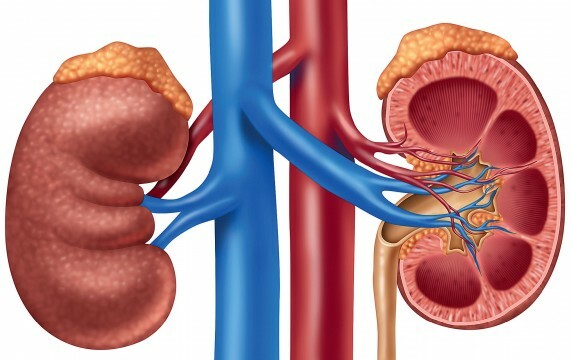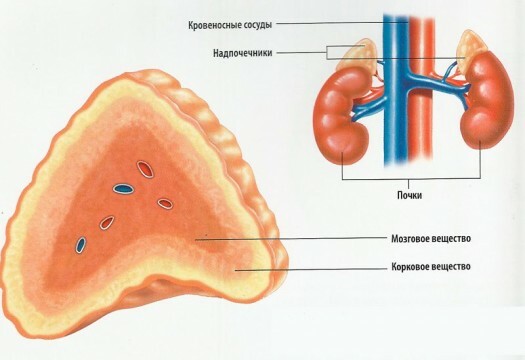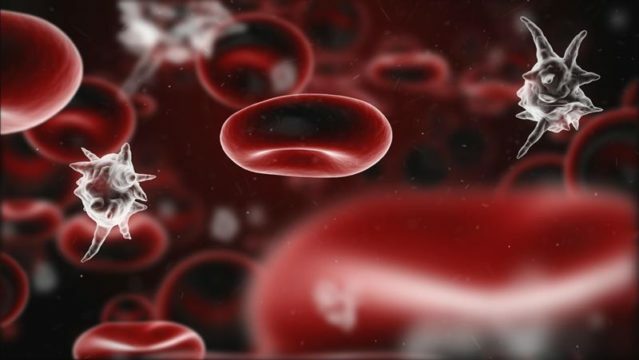Adrenal glands are special glands of internal secretion, which play a crucial role in maintaining homeostasis and stability of the body. They consist of a cortical and cerebral layer, each of which is responsible for the production of certain hormones.
The adrenal cortex produces:
- mineralocorticoids ( in the glomerular zone aldosterone, corticosterone, deoxycorticosterone are formed);
- glucocorticoids ( cortisol and cortisone are formed in the bundle zone);
- sex hormones ( androgens and estrogens are synthesized by the mesh gland).
Brain layer of the body produces catecholamines :
- epinephrine;
- norepinephrine.
Due to the work of these biologically active substances, it is possible to perform such necessary functions as maintaining normal blood pressure, providing water-salt balance, protecting the body from stress, and many others. The pathology of this organ is a serious disease that needs to be diagnosed in time to ensure proper treatment.
The most common diseases of the adrenal cortex

Since the adrenal glands are related to the endocrine glands and are capable of releasing active regulatory agents into the blood, the breakdown of the mechanism of their action can have 2 main development vectors:
- hypofunction - decreased productivity;
- hyperfunction - an increase in the number of hormones produced.
It is also important to note that a malfunction may concern both one particular hormone and the entire gland layer with the corresponding symptoms.
To diseases that occur according to the type of hyperfunctionality and are manifested by excess of the formation of active substances, include:
- hypercortisy( cortisol);
- hyperaldehistonism( aldosterone);
- adrenal hyperandrogenia( sex steroids);
- pheochromocytoma( catecholamines).
Diseases that are characterized by a lack of hormone release:
- Acute adrenal insufficiency( addisonic crisis) - a sharp stop in the formation of all the biologically active substances of the body;
- Chronic adrenal insufficiency, which is further divided into:
- Primary( Addison's disease) - organic damage to the cortex and a decrease in the production of hormones;
- Secondary, which is caused by abnormalities in the pituitary gland, resulting in a shortage of adrenocorticotropic hormone( ACTH).As a result, the pathological regulation of the adrenal glands with a lack of own secret.
Hypercorticism
Adrenal pathology, which is associated with an elevated level of secreted glucocorticoids( mainly cortisol), also has the name - Itenko-Cushing syndrome .Since their functions are mainly to maintain immunity, regulate body weight and participate in the elimination of the inflammatory process, the symptoms will also concern these phenomena.
The causes of such an ailment may be:
- Itzenko-Cushing's disease;
- is an ectopic ACTH sidromus( occurs with tumors in the lungs or other organs);
- overweight;
- type 1 and type 2 diabetes mellitus;
- constant stress state;
- child bearing.
All these factors can adversely affect the cortical layer of adrenal gland and stimulate its activity, which leads to the development of the main symptomatology, which can be manifested by the following signs of the disease:
- Characteristic obesity, which is manifested on the face( moon-like appearance), neck, upper body. In this case, the limbs remain normal, and the proportions of the body are violated;
- Significant increase in appetite;
- Disturbance of the metabolism of fats and glucose with the possibility of attaching diabetes mellitus type 2 ;
- Increased hair;
- Formation of skin stretch marks - striae. Crimson spots on the surface of the body;
- Osteoporosis and frequent pathological bone fractures.
For the treatment used drugs that lower the level of hormones in the blood( ketoconazole, mamomite) and symptomatic therapy for the management of metabolic disorders.
Hyperaldehistonism( Cohn's syndrome)

The disease caused by an excess of mineralocorticoids is called Kohn's syndrome. The main and probably the only reason is the presence of a good or malignant tumor in the adrenal cortex, which activates on the excreta of active substances by the body. Violated the function of maintaining the balance of sodium and potassium in the body. Develops hypokalemia, hypperhloremia.
The result is the following symptoms:
- persistent increase in blood pressure;
- increases the daily amount of excreted urine with a decrease in its density;
- muscle weakness and pain;
- myoplegia and frequency-increasing episodes of seizures;
- formation of nephropathy due to a lack of potassium.
The only effective method of treatment is the operative removal of the affected adrenal gland. Symptomatic therapy in the presence of a tumor is ineffective.
Pheochromocytoma
Pheochromocytoma is a tumor of the adrenal medulla that actively produces catecholamines( epinephrine and norepinephrine).Characterized by episodic onset of symptoms. With the next release of active substances into the blood, the following signs of the disease are observed:
- a sense of fear, a trembling of the body;
- chills;
- skin blushing;
- headache, dizziness;
- pain in the heart, tachycardia, extrasystole;
- nausea, vomiting;
- and most importantly - sharp increase in blood pressure to 250 mm Hg. Art.and higher .Often such a picture leads to hemorrhagic strokes.
Treatment involves surgical eradication of the tumor. To remove the crisis use Tropafen or Fentolamin.
Adrenal insufficiency adrenal gland

Adrenal insufficiency is a formidable polysymptomatic disease, the pathogenesis of which is caused by the inadequate function of producing mineralocroticoids and glucocorticoids by the cortical layer of glands. Depending on the course of the disease, it is divided into acute and chronic, and the latter, in turn, can be divided into primary, secondary and tertiary.
This classification of adrenal cortex lesions is based on the cause and mechanism of the pathological process.
- Primary hypokorticism ( Addison's disease) can be both congenital and acquired in adulthood as a result of autoimmune, infectious processes in the tissues of the organ or metastatic lesion of malignant neoplasm.
- Secondary failure is characterized by damage to the pituitary gland and an increased amount of adrenocorticotropic hormone, which suppresses the normal synthesis of substances by the adrenal glands;
- Tertiary is associated with the pathology of the hypothalamus. Inadequate isolation of releasing factors leads to a cascade of reactions that block the adequate work of the adrenal glands.
The main pathogenetic mechanism of Addison's disease development is organic damage to the internal structure of an organ with the formation of a malfunction of its work as a result of hemorrhage, tuberculosis infection, autoimmune lesion or other causes.
The permanent symptoms of adrenal insufficiency are shown by the following clinic:
- Increasing weakness in muscles, myasthenia gravis, constant fatigue;
- Skin discoloration with the appearance of dark brown pigmentation. This is most typical for the face, the joints bends, the areas of intense contact of the body with clothes, shoes, on the nipples of the mammary glands, the scrotum in men;
- Loss of appetite, nausea, vomiting, violations of bowel movements such as constipation or diarrhea;
- Decrease in mean arterial pressure, headache, dizziness, episodes of loss of consciousness;
- Nonspecific abdominal pain;
- Desire to consume salted foods due to violations of salt balance in the body;
- Changes in mood, irritability, aggressiveness, deterioration of attention and memory. Children experience a drop in school performance.
To confirm the presence of such a diagnosis and the choice of a method of treatment, it is necessary to undergo thorough clinical and instrumental research.
A typical adrenal insufficiency clinic:
- The general blood test will record anemic syndrome, as well as a decrease in the level of eosinophils;
- When biochemical examination: increased potassium and creatinine, lower sodium and glucose levels - develops a hypoglycemic state, which in some cases causes episodes of loss of consciousness;
- There is a sharp decrease in the number of hormones in the cortex of adrenal gland - aldosterone, cortisone and others;
- With ultrasound or computed tomography, will be recorded in the adrenal gland in size, different neoplasms in these organs( if any).
How to get rid of adrenal gland failure?

The whole process of treatment of such a constant and sluggish disease should be aimed at the artificial substitution of missing hormones and the elimination of a pathological agent that led to organ damage( healing of inflammation foci, surgical intervention to eliminate neoplasms).
It is recommended that a diet with a high content of proteins, vitamins, calories and kitchen salt up to 10 g / day, a restriction on the complete intake of alcohol. Patients should try to avoid heavy physical and nervous stresses as much as possible, rest more. Patients should be mentally prepared for the necessity of lifelong application of synthetic hormonal drugs( prednisolone, hydrocortisone and others) and the possibility of side effects.
Artificial hormones are drugs with a very complicated scheme of administration, lifting and lowering the dose depend on many factors and they can not be used chaotically! Self-treatment with a deficiency of the cortical layer of the adrenal gland often brings more harm than good.
At the same time, with timely diagnosis and adequate course of therapy, normalization of patients' lifestyle is observed. Women with this pathology can easily become pregnant and give birth independently.
Acute adrenal insufficiency
When talking about permanent pathology, one should not forget about the acute course of this process. The most frequent exacerbations occur in patients who suffer from a chronic form of the disease, and this is manifested by the so-called addisonic crisis. The reason for this is a sharp drop in the level of necessary hormones.
This can be observed if the instructions for taking synthetic drugs are not observed or during heavy physical exertion, injuries, surgical interventions, serious infectious processes.
The symptoms of Addison's crisis are as follows:
- A sharp drop in blood pressure until it is impossible to measure it;
- Weakness, cold sweat on the body, pallor of the skin;
- Tachycardia with arrhythmia, weakening of cardiac tones;
- Severe abdominal pain, nausea, vomiting, diarrhea;
- Sudden decrease in the amount of urine( oliguria, sometimes anuria);
- The patient's tongue is tangled, hallucinations may occur. It becomes quiet, speech incoherent, begins the development of the coma of the .On medical slang - the patient is "loaded".
This development requires immediate hospitalization in the intensive care unit with subsequent intensive treatment. The basis for excretion of a person from an addisonic coma is the intravenous injection of solutions of adrenal hormones and pathogenetic anti-shock therapy. With the timely start of health improvement measures, the chances for recovery are significantly increased.
Adrenal insufficiency in any form of the disease course remains a formidable and unpredictable disease. It is very important to know the main symptoms and to suspect it in time. If it is diagnosed correctly, and most importantly, on time, you can always pick up that dose of medication and treatment option, which will allow the patient to lead a normal lifestyle and rejoice at each day.



